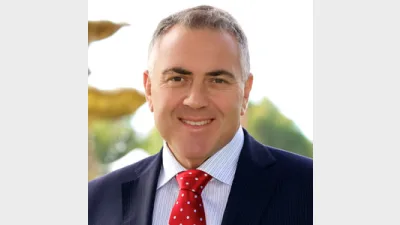Coalition commits to SG increase



Federal Treasurer Joe Hockey has announced the Government will release draft legislation for the repeal of the Minerals Resource Rent Tax (MRRT), confirming the Coalition will not rescind the increase in compulsory superannuation from 9 to 12 per cent.
"Where the Government specifically outlined that it would keep a spending measure linked to the mining tax, the Government will honour that commitment," Hockey said in a joint statement with Minister for Industry Ian Macfarlane and Finance Minister Mathias Cormann.
"For instance, the Government remains committed to not rescinding the increase in compulsory superannuation from 9 to 12 per cent, currently paused for two years."
The Financial Services Council (FSC) has commended the Government for confirming its commitment to increase the super guarantee (SG) to 12 per cent.
"The Government has a clear mandate to repeal the MRRT whilst retaining the key policy of increasing super contributions to 12 per cent by 2021", said FSC chief executive officer John Brogden.
"FSC research demonstrates that there is a retirement savings gap of over $1 trillion. Increasing superannuation contribution rates are critical in closing this gap and ensuring more Australians have adequate retirement savings."
The Government said the repeal of the MRRT package would contribute more than $13 billion of savings to the Budget's bottom line on an underlying cash basis over the forward estimates.
"The repeal of the MRRT works in tandem with an increase in the SG, which will reduce the Budget impact of an ageing population over the long-term," Brogden added.
Recommended for you
Australia’s largest super funds have deepened private markets exposure, scaled internal investment capability, and balanced liquidity as competition and consolidation intensify.
The ATO has revealed nearly $19 billion in lost and unclaimed super, urging over 7 million Australians to reclaim their savings.
The industry super fund has launched a new digital experience designed to make retirement preparation simpler and more personalised for its members.
A hold in the cash rate during the upcoming November monetary policy meeting appears to now be a certainty off the back of skyrocketing inflation during the September quarter.










